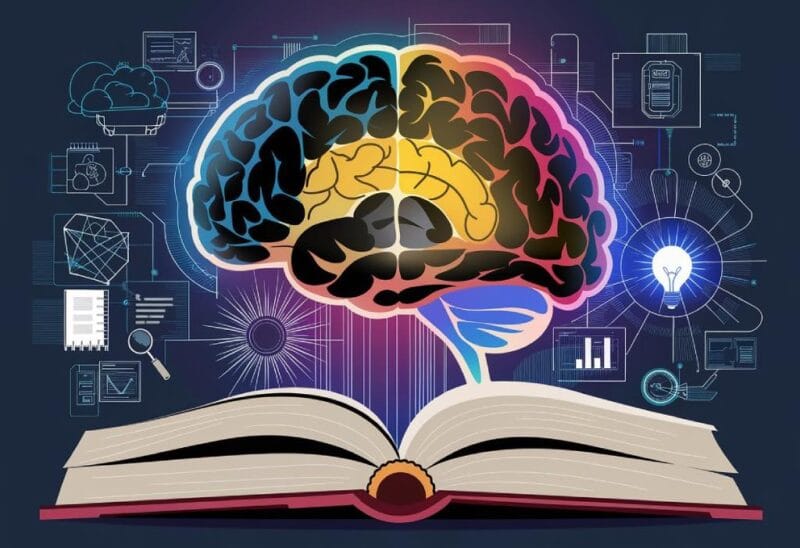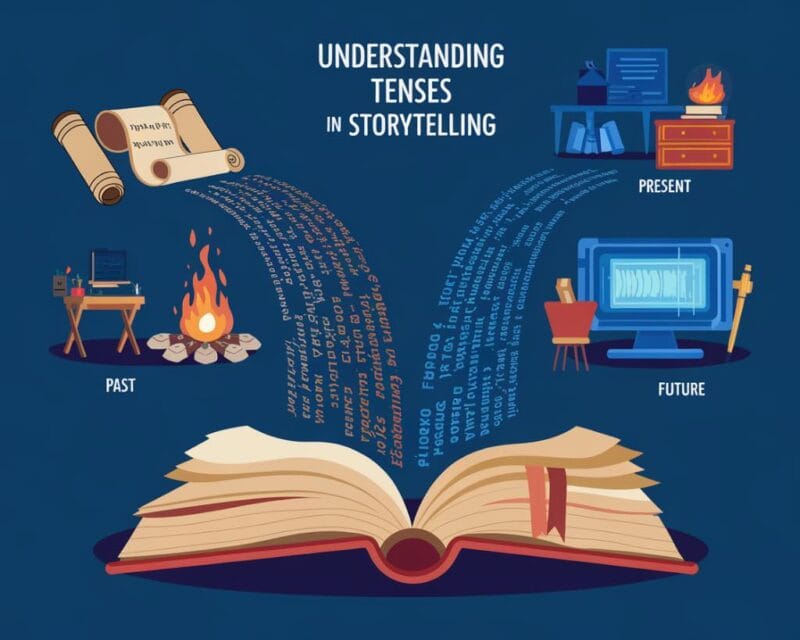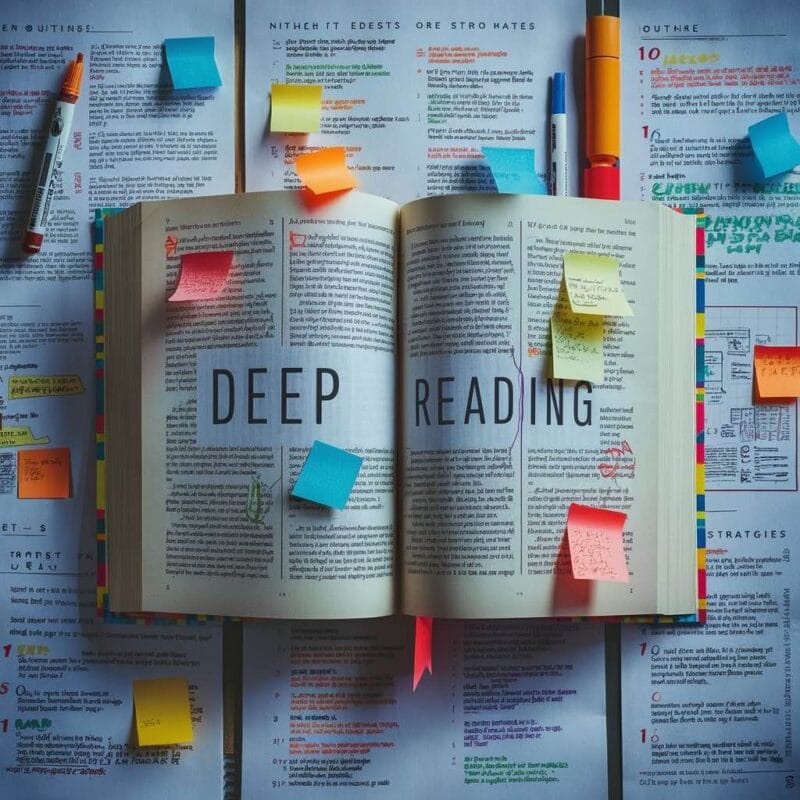[su_label type=”black”]Bookworm’s Notebook[/su_label]
[su_box title=”Key Takeaways” style=”soft”]
[su_list icon=”icon: check” indent=”4″]
- In a world dominated by technology and instant gratification, the importance of reading literature is often overlooked. Yet, literature offers significant benefits beyond entertainment, enhancing critical thinking and empathy skills crucial for personal growth and social consciousness.
- By immersing in fictional worlds and diverse characters, readers gain access to various perspectives and emotions and stimulate critical thinking through engagement with complex moral dilemmas, plot structures, and symbolism.
- Key cognitive benefits of reading literature include:
– Enhanced critical thinking skills
– Improved reasoning and evaluation abilities
– Strengthened imaginative and problem-solving skills - Emotionally, literature evokes a wide range of feelings—specifically empathy—thus a more profound understanding of the human experience. It inspires readers to connect with characters facing adversity, promoting compassion and appreciation for diverse emotions. Literature also encourages self-reflection that helps readers examine their own values and beliefs.
- Diverse literature plays a crucial role in expanding perspectives and challenging assumptions. It exposes readers to marginalized voices, encouraging a more inclusive worldview and critical examination of power structures. By confronting uncomfortable truths, readers become better equipped to challenge oppressive systems.
[/su_list]
[/su_box]
In a world saturated with technology and instant gratification, the importance of reading literature is often overlooked. Yet the power of a good book extends far beyond mere entertainment. Literature has the remarkable ability to enhance critical thinking and empathy skills, making it an invaluable tool for sharper analysis and richer human perspective.
By immersing ourselves in the intricacies of fictional worlds and the complexities of diverse characters, we gain access to a wealth of perspectives and emotions that expand our own understanding of the human experience. As we navigate the pages of a novel, for example, we engage with complex moral dilemmas, analyze intricate plot structures, and decipher symbolism, all of which enhance our critical thinking skills.
Furthermore, literature serves as a mirror that reflects our own emotions and experiences so that we connect with characters on a deep, empathetic level. Through this empathetic connection, we cultivate a greater understanding and appreciation for the diverse range of human emotions, experiences, and perspectives.
The Cognitive Benefits of Reading Literature
Reading literature has been shown to have numerous cognitive benefits. It stimulates our brains in ways that other forms of media simply cannot. When we read, we are not passive recipients of information; instead, we actively participate in the processes of comprehension, interpretation, and analysis. This active engagement enhances our critical thinking skills and strengthens our ability to reason, evaluate, and make connections.
Additionally, literature often presents us with complex narratives and multi-layered characters, challenging us to think critically and analyze the motivations and actions of these individuals. We are forced to consider multiple perspectives and weigh the consequences of various decisions. This analytical thinking translates into real-life situations, enabling us to approach problems with a more nuanced and thoughtful mindset. The capacity to think critically is becoming more useful in a society that often requires quick solutions and instant answers.

Reading literature also exercises our imagination, helping us visualize and create mental images of the settings, characters, and events described in the text. This imaginative thinking encourages creativity and problem-solving skills, as we are constantly required to fill in the gaps and make connections between the words on the page and the images we construct in our minds. This cognitive flexibility expands our capacity to think outside the box and consider multiple possibilities.
The Emotional Benefits of Reading Literature
While the cognitive benefits of reading literature are undeniable, its emotional benefits are equally profound. Literature has the power to evoke a wide range of emotions, from joy and excitement to sadness and despair. Through these emotional journeys, we develop a deeper understanding of and empathy for the human experience.
When we read about characters facing adversity, we empathize with their struggles and share in their triumphs. We witness the complexities of their emotions and the challenges they face, encouraging us to tap into our own reservoir of empathy. This empathetic connection expands our capacity for compassion, enabling us to relate to others on a deeper level and understand their perspectives and experiences.
Moreover, literature often explores universal themes and timeless truths about the human condition. Through the portrayal of love, loss, friendship, and betrayal, we gain insights into the complexities of human relationships and the universal emotions that bind us together. These shared experiences create a sense of connectedness and remind us of our common humanity. As we immerse ourselves in different cultures, time periods, and social contexts through literature, we develop a greater appreciation for diversity, tolerance, and understanding.

In addition to developing empathy and comprehension, literature provides an opportunity for self-reflection and personal development. As we encounter characters navigating life’s obstacles, we are compelled to consider our own experiences and decisions. We can identify areas for personal growth and embark on a journey of self-improvement by engaging in this process of self-reflection.
The Impact of Reading Literature on Personal Growth and Self-Reflection
The advantages of reading literature are known to have a significant influence on individual development and introspection. As readers engage with the narrative structure of a book, they encounter the intricacies inherent in the human condition, inciting introspection on personal principles, convictions, and decisions.
We could experiment with concepts that challenged our own preconceived assumptions in a safe environment thanks to literature. We are able to study the effects of certain acts, weigh various perspectives, and broaden our own worldview through the eyes of fictional characters. We could also examine our own prejudices, disprove our presumptions, and broaden our worldview via the process of self-reflection.
Furthermore, literature often deals with universal themes and existential issues that strike a deep personal chord with readers. We are compelled to reflect on our own experiences and principles as we meet characters dealing with love, grief, identity, and purpose. Literature serves as a mirror in which our own feelings, wants, and anxieties are reflected, helping us to get a better knowledge of ourselves and our role in the world. Through literature, we also find solace and comfort in knowing that we are not alone in our struggles and aspirations.
The power of storytelling lies in its ability to create connections and bridge the gap between individuals. As we read about characters facing similar challenges to our own, we realize that our experiences are not isolated but part of a larger human tapestry. This realization inspires a sense of belonging and encourages us to share our own stories, contributing to a collective understanding and empathy.
The Role of Diverse Literature in Fostering Empathy and Understanding
Reading literature helps us understand humanity; it enables us to see the world through the eyes of others.
While all literature has the potential to enhance empathy and understanding, diverse literature plays a particularly important role in expanding our perspectives and challenging our assumptions. Diverse literature is representative of a broad spectrum of cultures, identities, and experiences. By perusing diverse literature, we are exposed to historically marginalized or underrepresented voices, enabling us to develop a more nuanced and inclusive worldview.
Diverse works of literature push us to see ourselves in the roles of people from backgrounds, perspectives, and life experiences that aren’t similar to our own. It overturns preconceptions, challenges stereotypes, and humanizes people who may have been reduced to one-dimensional caricatures in conventional narratives. We obtain a greater knowledge of the nuances of the human experience and foster empathy for others who may be different from us through exposure to many points of view.
Moreover, diverse literature encourages us to critically examine power structures and established social conventions. It exposes us to the realities of systemic inequalities, discrimination, and social injustice, prompting us to question our own biases and privileges. By confronting uncomfortable truths through literature, we become better equipped to challenge and dismantle oppressive systems in our own lives and communities.
Recommended Literary Works for Enhancing Critical Thinking and Empathy Skills
While there are countless literary works that help improve critical thinking and empathy, here are a few suggestions that provide unique views and perspectives:
- Harper Lee‘s “To Kill a Mockingbird” — Through the perspective of a little girl in the racially divided South, this classic book addresses issues of racism, injustice, and moral bravery. It encourages readers to question established conventions and build empathy for individuals who are excluded.
- Khaled Hosseini’s “The Kite Runner” — This work delves into issues of guilt, repentance, and the complexity of friendship against the background of Afghanistan’s tragic past. It encourages readers to think critically about cultural differences and the effects of historical events on people’s lives.
- Toni Morrison’s “Beloved” — The legacy of slavery and its influence on people and communities is addressed in this Pulitzer Prize-winning book. It urges readers to critically examine the impact of trauma and the power of memory via beautiful writing and unsettling narrative.
- Margaret Atwood‘s “The Handmaid’s Tale” — This dystopian story asks readers to critically evaluate power systems and the ramifications of a society ruled by repressive ideas.
- Paulo Coelho’s “The Alchemist” — This inspiring story follows a young shepherd on a voyage of self-discovery and personal improvement. It urges readers to consider their own aspirations and desires, as well as the value of forging their own path.
Through the complexities of fictional worlds and the diverse range of characters, literature expands our perspectives, challenges our assumptions, and develops a deeper understanding of the human experience. It invites us to engage with complex moral dilemmas, analyze intricate plot structures, and decipher symbolism, all of which cultivate critical thinking skills.
We have access to a wide range of viewpoints and feelings when we immerse ourselves in the world of literature, and this broadens our own knowledge of what it is to be human. We improve our capacity for critical thinking, information evaluation, and problem-solving by adopting more subtle and considerate methods. Through self-reflection, we also develop empathy, a respect for variety, and personal development.
Diverse voices and viewpoints must be included in our reading habits and educational environments if we are to truly realize the transformative potential of literature. We increase our empathy, challenge our preconceptions, and work toward a more compassionate and inclusive society by exposing ourselves to tales that reflect a diverse variety of cultures, identities, and experiences.
So, let us embrace the power of literature and unlock the boundless potential it holds for our personal growth and societal development. Through reading, we can shape our minds, cultivate empathy, and contribute to a more empathetic and understanding world.
Further Reading
Teach Empathy With Literature by Christina Gil, Edutopia
Literature in Education: How Reading Shapes Critical Thinking by Literature Experts
Reading literary fiction improves empathy, study finds by Liz Bury, The Guardian
Does studying literature improve critical thinking skills? on Quora





